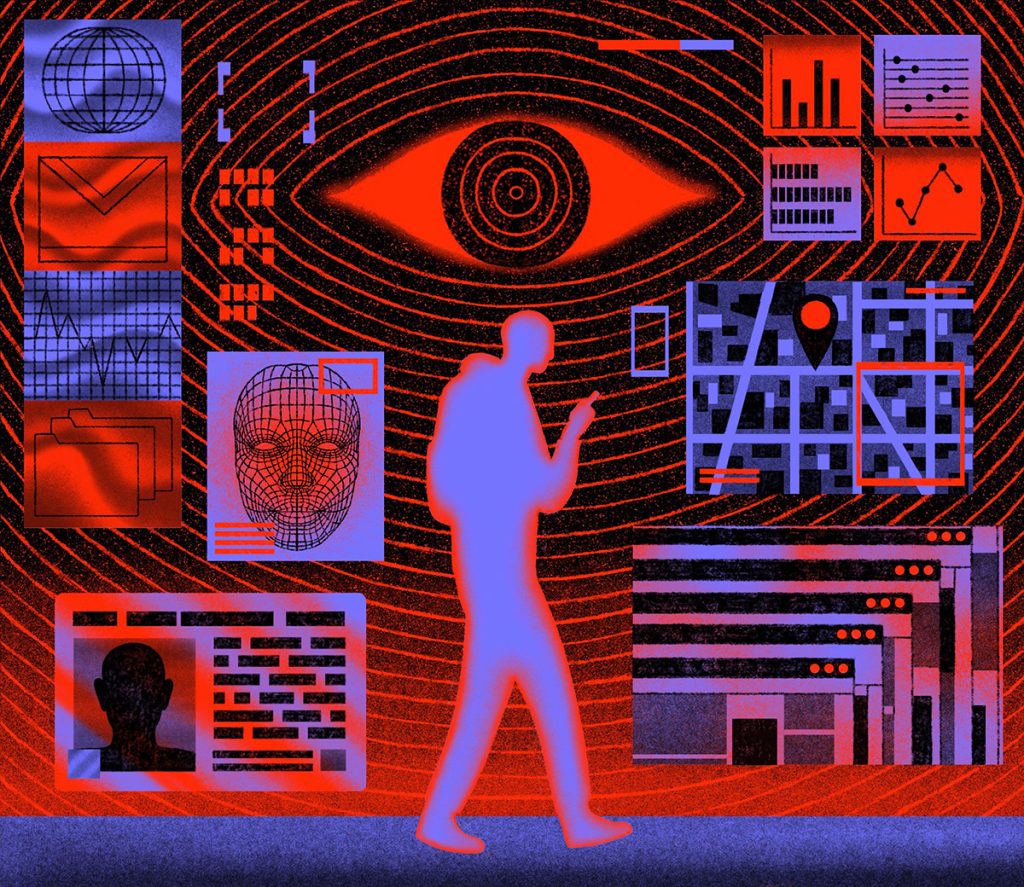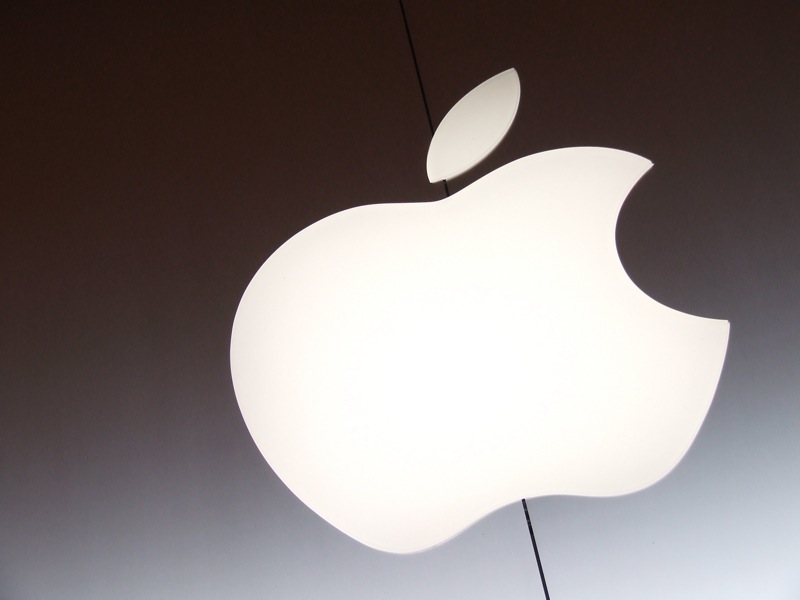Hybridization technology would be an amazing way to advance human society in a transhumanist way. Animals have many valuable characteristics that would be able to help humanity achieve things we could only dream of before. We would be able to soar high in the sky, explore the deep sea, or run at amazing speeds. If we had the technology to transfer characteristics from one animal to me, the animal I would choose would be a dolphin. A dolphin is one of the most intelligent mammals. They currently exhibit skills and social structures similar to what we see in people and primates. Dolphins have a great memory and are able to adapt based on given circumstances. With being a dolphin hybrid, I would be able to dive to amazing depths of the ocean and see so many things that we as man probably don’t know exist. 70% of the Earth’s ocean is unexplored, being a hybrid I would be able to explore deep reveens, abandoned ships, and unexplored caves. Being able to swim at 37 mph and play with other sea animals would be amazing. Using their echolocation I would be able to navigate around anything and anywhere. Although I want the abilities of the dolphin I wouldn’t want to look like one. I would still want my human features. With being a hybrid I would have to be mindful of others and their outlook of hybridization. Therefore, having my human characteristics and humanity intact would help minimize potential conflict. I personally wouldn’t want to give up my humanity in order to be a hybrid. I would want the hybridization to add to my capabilities not take away from it.This would occur through combining the most valuable aspects of both dolphin and human characteristics. I believe that a dolphin’s behaviors and interactions would mimic very similar to humans.
From Fiction to Reality
Let’s talk about cyberpunk, those gritty, neon-drenched worlds full of mega-corporations controlling every aspect of life. We see it in Blade Runner, with the Tyrell Corporation engineering artificial humans for profit, or in Neuromancer, where the Tessier-Ashpools build their legacy on secrets and untouchable wealth. These companies have power beyond government control, leaving the average person almost powerless. It’s fascinating, but could any of this actually happen in real life?
Now, take a look at today’s world. Tech giants like Amazon, Google, and Meta shape the way we communicate, shop, and even think. Their algorithms track our habits, curate our feeds, and sometimes even predict our moves. Add in Big Pharma’s influence over what medicines hit the market and their control over drug prices—this all sounds like it’s ripped straight from a cyberpunk plot. But is it?
While it might feel like a stretch, this influence raises some big questions about where these companies are headed. Sure, these corporations aren’t building robots to serve humanity yet, but their growing impact on our lives could be a stepping stone in that direction.
Is the cyberpunk genre just a hyperbolic take on capitalism, or is it actually onto something? Maybe both. These stories push boundaries to make us think: What happens if we let corporations grow too powerful? We have regulations to keep things in check, but technology is evolving faster than laws can keep up. Could we one day see a world where companies hold as much power as governments? The cyberpunk answer is “yes.”
Cyberpunk tales like Blade Runner and Neuromancer make us question where society is going. Are we okay with companies having access to so much of our personal data? Should we be thinking about new limits as technology and corporate influence grow? These questions don’t have easy answers, but maybe that’s the point: we’re supposed to stay curious and cautious. What do you think? Do you see any of these corporate trends as concerning, or are these just cool sci-fi stories with no real threat?

Risky Business
In today’s world, it’s nearly impossible to escape advertising. Whether scrolling through social media, watching TV, walking down the street, or even checking your email, ads are everywhere, urging you to buy something. But behind this constant barrage of marketing is a clear goal: corporations want to make a profit—and they’ll do almost anything to get us to open our wallets, even if it means downplaying or ignoring the dangers their products may cause to consumers and the people they employ. Consumers ingest products like cigarettes to help them with anxiety and then get addicted, the long-term effect of smoking tobacco/cigarettes leads to cancer and other serious problems all at the cost of making someone else rich off the suffering of others. Corporate greed impacts the ones employed by the corporations putting them in unsafe work conditions that don’t afford the workers to live comfortably.
Additionally, kids being employed is detrimental because it brings the human development index down. After all, the kids are working instead of receiving an adequate education that can help them be better in life instead of having to work in these industries that always result in a zero-sum game, in which no one benefits. Therefore, I do think corporations are headed in the direction of the cyberpunk approach. Due to corporations not caring about the welfare of the people they create value in their products and help them earn profit. The patterns of corporate greed and disregard for human value resemble the dystopian realities of cyberpunk fiction more and more. I think the movies/ creative expression of cyberpunk which model the future of our society and display corporate greed is a realistic prediction of how we should expect our society to operate. Change is inevitable so it is likely that ads will progress and corporations will only get greedier to manipulate individuals into throwing their morals away and purchasing products just to do it because they have been manipulated.
Corporation Takeover?

There are many corporations in today’s world. Apple, Coca-Cola, and H-E-B are all examples of corporations. Are these corporations heading in the direction predicted by cyberpunk narratives? I would say the answer is yes. Let’s take the pill funders from Machinehood for example. These pill funders fund pills that people take every day. The pill funders claim these pills are necessary to take every day in order for humans to stand a chance against advanced technology. These pills are personalized to fit everyone’s needs. I think it is possible for corporations in today’s world to be heading in this direction. There are still many people in today’s world who are afraid of artificial intelligence. I think it would be likely that people would feel the need to take the daily pills to compete with artificial intelligence, especially since many still fear it. There are already millions of Americans who take daily vitamins. If corporations push the concept of daily pills as a way to take care of one’s health and combat against artificial intelligence, I think many people will go for it. Especially, if it becomes necessary like it is in Machinehood. In an advanced technological society, a direction we moving in, daily pills become a sort of necessity. Humans feel the need to be the best at everything, so it is likely they will take pills to surpass typical human capabilities in order to compete with artificial intelligence. There are already some similarities between this society and Machinehood’s society. For example, people in Machinehood have personal artificial intelligence, or agents, tell them about their personal health. While we do not have personal artificial intelligence telling us about our personal health, we do have things like apple watches, fitbits, or oura rings. All of these tell us different things about our personal health like the personal artificial intelligence do in Machinehood. I think the cyberpunk narrative from Machinehood is a realistic prediction of our future.
References:
Divya, S. B. (2022). Machinehood. Saga Press.
Beyond Biology: The Ethics of Human Enhancement
Throughout this class, I’ve explored complex questions about human augmentation, from the boundary-shifting nature of working from home to the limits of merging humanity with technology. Considering the evolving landscape of human augmentation, I envision options arising that seem right out of science fiction—enhancements that blend our biological selves with digital and mechanical systems, allowing people to transcend physical and cognitive limitations. The question, though, is not just “Can we?” but “Should we?”

I think accessible augmentations will focus on improving everyday life, including implants that enhance memory retention, devices that monitor and adapt to our mental and physical health in real time, and sensory improvements like augmented vision or hearing. These feel like natural extensions of devices we already rely on (phones, wearables), and I could see myself experimenting with technology that boosts my cognitive efficiency or helps manage health.
However, there are limits to what I’d be comfortable with. The potential for invasive neural implants or gene-editing enhancements aimed purely at “upgrading” humans sits on a moral fault line. Such adaptations risk reinforcing social inequalities, creating a divide between the augmented and non-augmented. As someone with a background in public health, I see how disparities in access to healthcare already affect vulnerable communities. Unequal access to these technologies could deepen these gaps, turning what should be human improvement into a new form of discrimination.
I’m open to augmentations that preserve and protect my natural abilities. For example, using technology to manage health conditions is acceptable. But I would reject enhancements that alter my identity or biological essence—anything that risks turning me into something fundamentally different from the person I am today. We will all have choices about the type of augmentation we accept, and those choices will reflect our values and identity. My personal line lies where technology starts to replace what it means to be human instead of enhancing it. Navigating these choices will require us to consider not only the benefits but the ethical and social impact on our society and our sense of self.
Speed of Thought: Embracing the Cheetah Within
What if we could borrow traits from another animal to become a hybrid version of ourselves? If I had the choice, I’d choose to combine human qualities with the power of a cheetah. This animal is known as the fastest land animal, the cheetah isn’t just about speed, it also embodies agility, focus, and acute perception. Hybridizing with a cheetah would bring these abilities into human potential, transforming both the physical and mental sides of life.
A cheetah’s speed is incredible, reaching up to 60-70 mph in short bursts. They possess remarkable acceleration and unmatched focus when chasing prey. Imagine how that combination could enhance a human’s ability to respond quickly, tackle challenges efficiently, and stay intensely focused on goals. In the context of daily life, I see these traits as a metaphor for productivity and mental clarity. In a world where distractions are everywhere, gaining a “cheetah mindset” would help me pursue tasks with laser-like precision and agility.
While a cheetah’s speed and agility are thrilling, I’d prefer to limit the hybridization to cognitive and perceptual abilities. For instance, the heightened spatial awareness and quick decision, making that cheetahs exhibit during hunts could greatly improve a human’s reflexes and problem-solving speed. Perhaps there could even be slight physical enhancements, like improved cardiovascular endurance and agility, without losing my human appearance.
In considering how much of my humanity I’d give up, I would want to keep my core human traits such as empathy, creativity, and reasoning. However, I’d welcome a shift in perspective inspired by the cheetah’s natural instincts. Combining human intelligence with the cheetah’s pure focus and adaptability could lead to a harmonious blend, allowing us to function at a higher level without losing what makes us human. Imagine if we could approach each day with a cheetah’s drive, moving efficiently from task to task, always focused and purposeful. By blending our strengths with those of this animal, we’d redefine productivity and mindfulness in a way that’s uniquely human, yet inspired by the animal kingdom.

Image created with ChatGPT DC050116-2D8D-4A75-ABA
Corporate Greed in Cyberpunk: Is It Just Fiction or a Terrifying Possibility?

Ah, the world of cyberpunk— where we have the neon bright lights, damp rainy streets, rogue AIs, and, of course, the oh-so-charming corporate overlords who dictate everything, um, I mean own everything. They “help” run the streets, “help” control your data, and probably have a couple of assassin squads on standby just in case you’re getting too rebellious are there when you need them! Ok, all jokes aside, if there’s one major theme cyberpunk narratives love to bring to the forefront, it’s that the corporate world is full of greed and absolutely knows no bounds. It’s evident these mega-corporations aren’t just in it for the money—they’re in it for something far more sinister: control.
As seen with many of the novels we’ve explored in class with examples ranging from Blade Runner’s Tyrell Corporation to the “pill funders” in Machinehood, it’s evident that many cyberpunk narratives depict corporations that are greedy and put themselves above the people in the city. With that being said, I want to specifically focus my attention on the Tyrell Corporation from the sci-fi film Blade Runner. In a sense, you can say that the founder, Dr. Eldon Tyrell, “plays God” since he created a company that crafts, molds, and modifies a “race” of people whose sole purpose is to track down replicants. In fact, the Tyrell Corporation’s official motto is “more human than human,” which is a reference to that company’s primary product: superhuman clones that are called Replicants. How is this company greedy and power hungry you may ask. Well, it’s Tyrell’s obsession with profit and control over life itself that illustrates the terrifying extension of corporate power, where profit is the ultimate goal—even at the cost of humans, or in this case, potential artificial life. However, the biggest takeaway from all of this is that Tyrell’s greed is his own downfall.
So, is this just some wild dystopian fantasy, or are modern day corporations really heading in this direction? I’m at a mix of answers when it comes to this question. On one hand, it’s easy to write off these extreme depictions as exaggerations for entertainment purposes—after all, the Replicants were supposed to be created so they can just be used as pawns, the Tyrell Corporation didn’t exactly invent self-aware robots that wanted to kill their creators, nor did the corporation intend for it to be that way, but the Replicants turned out to be emotional, complex, individuals who longed for freedom and wondered what it meant to be human. I think as we advance more and see the the increasing concentration of power in the hands of giant companies today, you start to see the beginning of these corporate greed concerns. From personal data collections, corporate influence over government policies, billion dollar companies exploiting their employees by paying them low wages, etc. it’s no question why many agree that we’re heading in this direction.
Is Tyrell Corporation a Glimpse into our Future?
Considering the Tyrell Corporation and the contemporary world, I think it would be a very far reach to say that corporations are headed in the direction of the type of cyberpunk future depicted in Blade Runner. While we can see a rapid incline in the use of artificial intelligence and other technologies, I think that Blade Runner and the Tyrell Corporation offers a hyperbolic critique of reality. The Tyrell Corporation created “replicants”, robots with human-like appearances, made for labor and the exploitation of actual humans. They increase corporation profit and technological advancement at the expense of human ethics and the environment. While human rights are becoming more and more expendable, when it comes to the agenda of corporations and those in power, an ultimate goal of creating human-like robots to use as slaves is a very extreme case, and hopefully does not become anything close to reality. Furthermore, other aspects from Blade Runner such as environmental decay, social inequality, and dehumanization are all themes that are reflected in the contemporary, but taken to an extreme in the movie. The Tyrell Corporation used actual robots to portray the dehumanization of people, showing that humans are only necessary for labor. This depiction of society is a hyperbolic reality. I will say that the environmental decay and social inequality are both realistic predictions of the future of the contemporary world, but ultimately, these aspects have been the reality for years now, so I don’t see any progression of environmental decay or social inequality having as big of an impact on contemporary society as the implementation of something like a “replica” would have. In conclusion, while Blade Runner and the Tyrell Corporation do offer some aspects that can be seen as accurate predictions of contemporary society, considering where we are now, I believe that the corporation as a whole does in fact offer a hyperbolic prediction of the future.
Corporate Power and Greed- Reality or Illusion ?
Realistic prediction, or a hyperbolic critique of reality? Cyberpunk fiction provides some of the most vivid portrayals of corporate power and greed, where companies control society, technology, and even people’s lives. In Blade Runner, the Tyrell Corporation creates replicants, which are artificial beings treated as disposable products, demonstrating extreme corporate control over life. Similarly, the Tessier-Ashpools in Neuromancer represent a wealthy corporate dynasty that manipulates markets and people’s lives from the shadows. In Machinehood, “pill funders” ensure that society becomes dependent on drugs for productivity and health, illustrating how corporations can shape human existence.

These narratives might seem overblown, but they reflect real-world trends that are increasingly concerning. Nowadays, tech giants like Apple and Google hold immense power, not only by managing the information we choose to share but also by shaping public viewpoints we accept. Not just tech giants but also companies in the biotech field are advancing genetic engineering and brain-machine interfaces, raising ethical questions about the implications of such technology on humanity and much more. Although we may not be on the edge of a complete cyberpunk dystopia, the warnings these stories convey are real and concerning. Cyberpunk challenges us to consider how much control corporations should have over our lives.

Cyberpunk stories like Blade Runner serve as both cautionary tales and reflections of our reality. They spotlight the potential dangers of unchecked corporate power and emphasize the need for accountability to ensure that innovation aligns with the greater good. By heeding these warnings, we can work toward a future where technology serves humanity, rather than the other way around. The rise of corporate influence in our everyday lives, from the information we consume to the technology that powers our health and productivity, highlights a crucial choice and the question: Will we permit corporations to shape our future without limits, or will we insist on transparency, ethics, and accountability?
The Tyrell Effect

Works within the cyberpunk genre integrate corporations in their plots to criticize the concentration of wealth in their dystopian societies. Cyberpunk works such as Blade Runner, Neuromancer, and Machinehood describe how corporations with unchecked power can determine the fate of society. The power that these corporations have over the people as it is depicted in these works is terrifying and leads us to consider if our world is heading in this direction. Pondering on this idea, I hypothesize that our world will head in this direction and is a very possible future for us.
In Blade Runner, the Tyrell Corporation had a strong grip on society with the implementation of its replicants technology which were similar to humans but instead had a limited life span. Its control over the replicants went way beyond the control of a piece of technology; it turned into controlling life vs. death since they determined when the replicants had to die. Similarly, Neuromancer depicted the Tessier-Ashpool family which acted as royalty over the technological advancements in their society. Their control over AI affected the ideas of humanity and autonomy. These same ideas were also seen in Machinehood in which the pill funders exerted control over society by making people dependent on pills to survive. All three of these works are excellent examples of what society is like when corporations take over not just the items commonly used in society but also the fundamental rights that make humans human.

Beyond the fictional works examined in this course, these beginnings of these same ideas can be seen in our society today. The major tech companies today like Meta, Amazon, and Apple have major influences on our society. For example, Meta is able to collect personal data from its users and use this data to display advertisements that appeal to the users. This can be scary since we have no idea the full scope of what they do with our data.
Although these examples are scary and concerning in regards to the future of our society, I believe our society is pretty far from this being our reality. Our current governments have some control over these corporations, even though the corporations in some cases work in conjunction with the government. However, as corporations continue to become more and more powerful, this concern may become our reality because the issues of the corporations who have the concentrated power will be made the issues of society. This means that the issues of the general public will be disregarded for the wishes of the people in power.